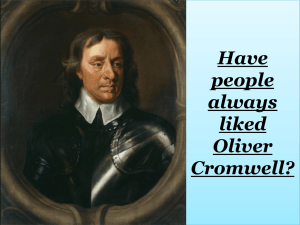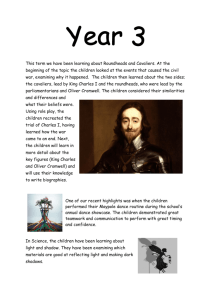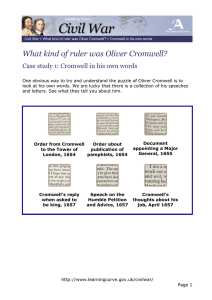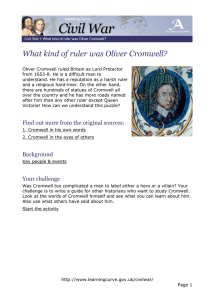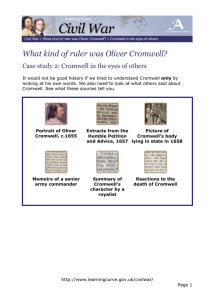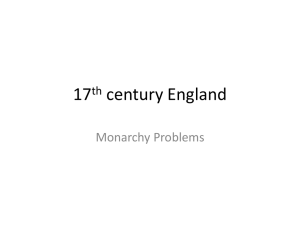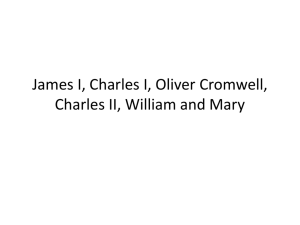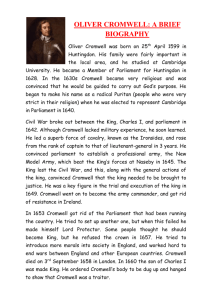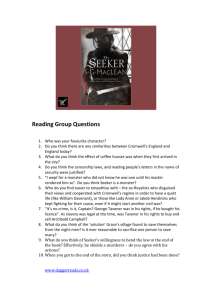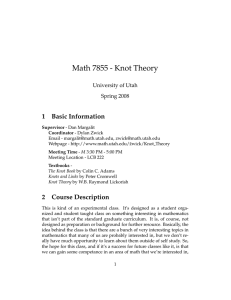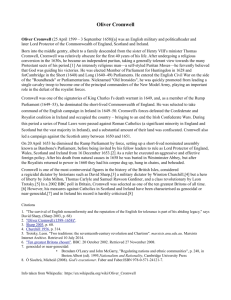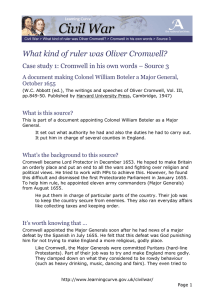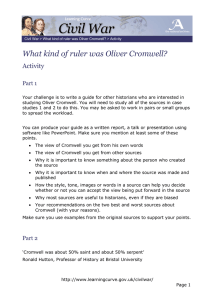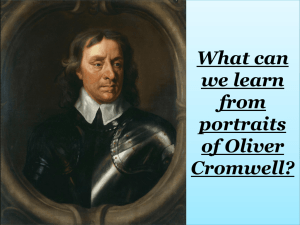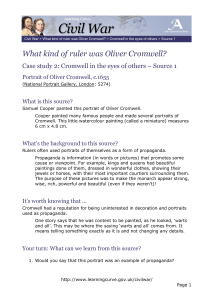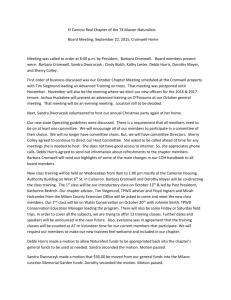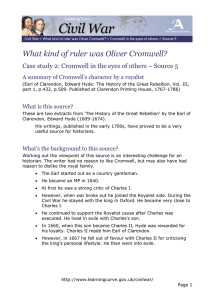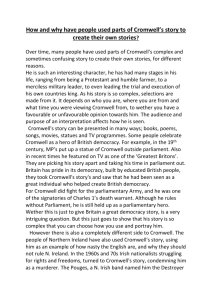Oliver Cromwell
advertisement
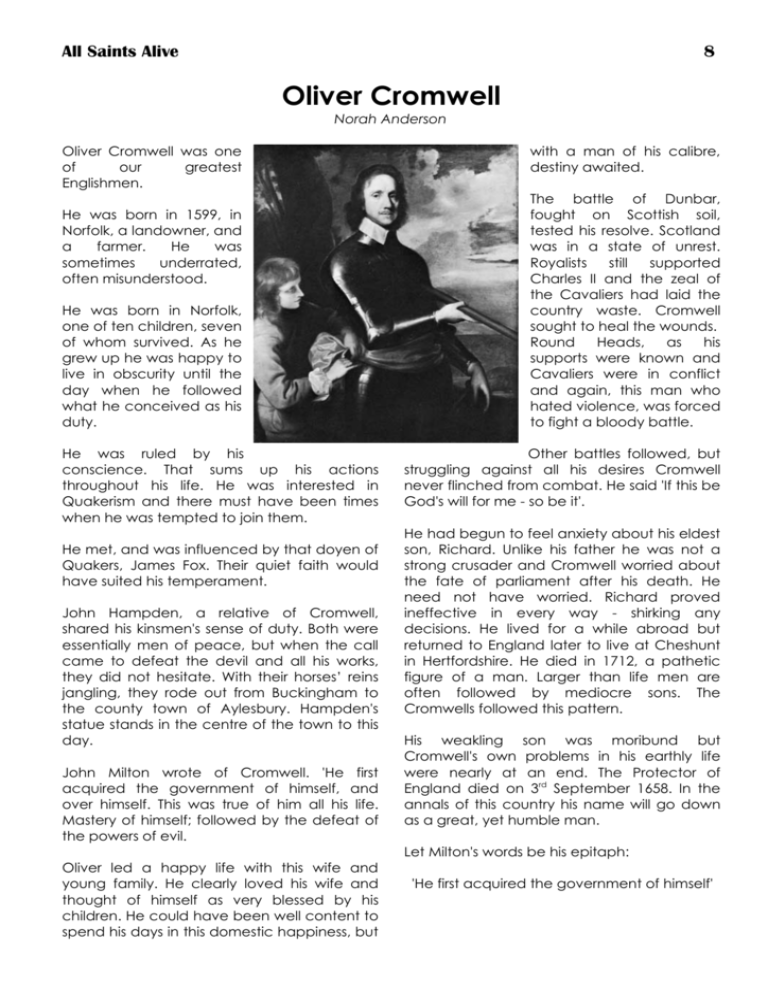
All Saints Alive 8 Oliver Cromwell Norah Anderson Oliver Cromwell was one of our greatest Englishmen. He was born in 1599, in Norfolk, a landowner, and a farmer. He was sometimes underrated, often misunderstood. He was born in Norfolk, one of ten children, seven of whom survived. As he grew up he was happy to live in obscurity until the day when he followed what he conceived as his duty. He was ruled by his conscience. That sums up his actions throughout his life. He was interested in Quakerism and there must have been times when he was tempted to join them. He met, and was influenced by that doyen of Quakers, James Fox. Their quiet faith would have suited his temperament. John Hampden, a relative of Cromwell, shared his kinsmen's sense of duty. Both were essentially men of peace, but when the call came to defeat the devil and all his works, they did not hesitate. With their horses’ reins jangling, they rode out from Buckingham to the county town of Aylesbury. Hampden's statue stands in the centre of the town to this day. John Milton wrote of Cromwell. 'He first acquired the government of himself, and over himself. This was true of him all his life. Mastery of himself; followed by the defeat of the powers of evil. with a man of his calibre, destiny awaited. The battle of Dunbar, fought on Scottish soil, tested his resolve. Scotland was in a state of unrest. Royalists still supported Charles II and the zeal of the Cavaliers had laid the country waste. Cromwell sought to heal the wounds. Round Heads, as his supports were known and Cavaliers were in conflict and again, this man who hated violence, was forced to fight a bloody battle. Other battles followed, but struggling against all his desires Cromwell never flinched from combat. He said 'If this be God's will for me - so be it'. He had begun to feel anxiety about his eldest son, Richard. Unlike his father he was not a strong crusader and Cromwell worried about the fate of parliament after his death. He need not have worried. Richard proved ineffective in every way - shirking any decisions. He lived for a while abroad but returned to England later to live at Cheshunt in Hertfordshire. He died in 1712, a pathetic figure of a man. Larger than life men are often followed by mediocre sons. The Cromwells followed this pattern. His weakling son was moribund but Cromwell's own problems in his earthly life were nearly at an end. The Protector of England died on 3rd September 1658. In the annals of this country his name will go down as a great, yet humble man. Let Milton's words be his epitaph: Oliver led a happy life with this wife and young family. He clearly loved his wife and thought of himself as very blessed by his children. He could have been well content to spend his days in this domestic happiness, but 'He first acquired the government of himself'
